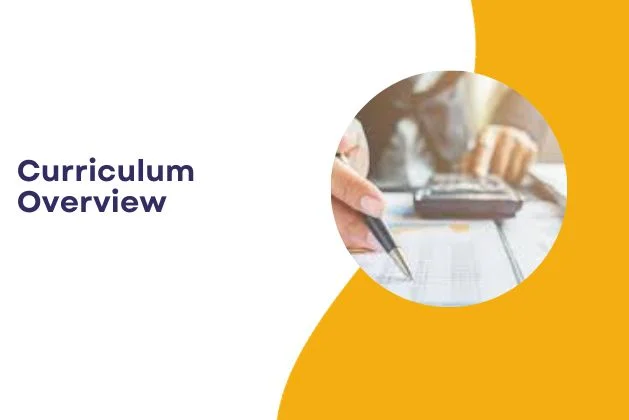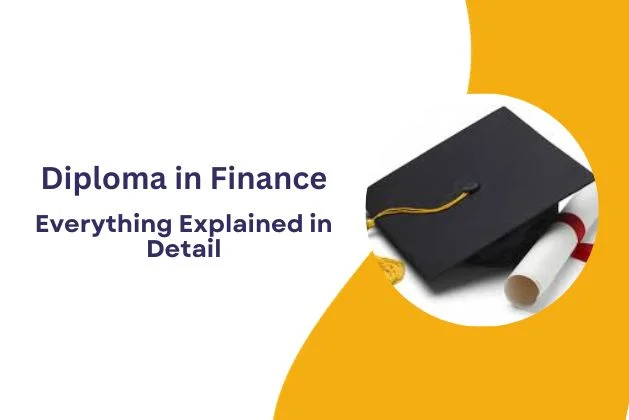Table of Contents
ToggleIntroduction
In the fast-paced and ever-changing world of finance, having a deep understanding of specialized knowledge and honing specific skills is essential for carving out a successful career.
One effective way to gain this expertise is by pursuing a Diploma in Finance – a comprehensive program that provides individuals with a solid foundation in financial management, investment strategies, and economic analysis.
In this blog post, we will delve into the significance of obtaining a Diploma in Finance, the diverse range of topics it typically covers, and the numerous opportunities it can unlock for aspiring finance professionals.
Acquiring a Diploma in Finance can be a crucial step towards professional growth and success.
This program equips individuals with the necessary knowledge and skills to navigate the complex world of finance with confidence and competence.
By studying various financial concepts such as risk management, financial planning, portfolio management, and financial reporting, students gain a holistic understanding of how different aspects of finance work together to drive business decisions.
Why Pursue a Diploma in Finance

Foundational Knowledge:
Obtaining a Diploma in Finance is a crucial step towards gaining a comprehensive understanding of the key principles and concepts that govern the world of finance.
This specialized program equips students with a solid foundation in fundamental financial concepts, such as budgeting, investment strategies, and risk management.
Furthermore, it also covers essential accounting principles, including financial statement analysis and cost control techniques, which are vital for making informed financial decisions.
In addition to this, students will also delve into economic theories that play a significant role in shaping global financial markets and policies.
Armed with this knowledge, graduates of this program are well-prepared to pursue various finance-related roles in different industries.
Whether it is managing investments for individuals or businesses, analyzing market trends and data, or providing sound financial advice to clients, a Diploma in Finance lays the groundwork for a successful career in the dynamic field of finance.
Career Advancement:
Are you at the beginning of your professional journey or seeking to advance your current skill set? If so, obtaining a Diploma in Finance can greatly enhance your chances of securing employment.
This highly sought-after qualification showcases to potential employers that you possess a deep understanding of finance and are dedicated to pursuing a career in this field.
A Diploma in Finance is designed to provide individuals with specialized knowledge in various aspects of finance, such as financial analysis, investment management, and risk assessment.
Through comprehensive coursework and practical training, students develop a strong foundation in financial principles and techniques.
This not only equips them with the necessary skills but also demonstrates their commitment and determination to excel in the finance industry.
By earning a Diploma in Finance, individuals can position themselves as desirable candidates for a wide range of job opportunities.
From entry-level positions to senior roles, this qualification opens doors to various career paths within finance-related fields such as banking, accounting, financial planning, and consulting.
Versatility:
The comprehensive curriculum of a Diploma in Finance is meticulously crafted to encompass a diverse range of financial subjects.
This well-rounded program equips graduates with the necessary knowledge and skills to excel in various fields within the financial sector, including corporate finance, investment banking, and financial analysis.
Through a combination of theoretical concepts and practical applications, students are introduced to key areas such as financial management, investment strategies, risk assessment, and economic principles.
They also gain an understanding of the ever-evolving global financial landscape and its impact on businesses and individuals.
In addition to core finance courses, the curriculum also includes specialized electives that allow students to tailor their studies according to their interests and career goals.
These electives cover topics such as mergers and acquisitions, international finance, and portfolio management.
As part of their coursework, students engage in hands-on projects and case studies that simulate real-world scenarios.
This not only enhances their understanding of complex financial concepts but also hones their critical thinking and problem-solving skills.
Practical Application:
Diploma programs are structured in a way that allows students to gain a comprehensive understanding of the finance industry through practical application. This is achieved through incorporating real-world case studies, projects, and simulations into the curriculum.
These activities provide students with an opportunity to explore and analyze relevant scenarios and challenges that they may encounter in their future careers.
By actively engaging in these hands-on experiences, students not only grasp theoretical concepts but also develop practical skills that are crucial for success in the finance industry.
This approach enables students to apply their knowledge and hone their abilities, preparing them for the demands of the fast-paced and dynamic world of finance.
With a balance between theoretical knowledge and practical skills, graduates of these Diploma programs are well-equipped to excel in this competitive industry.
Also Read: Types of Financial Instruments
Curriculum Overview


While specific courses may vary, a typical Diploma in Finance program covers a range of core subjects, including:
Financial Accounting:
Understanding the principles of accounting, financial statements, and the interpretation of financial data.
Corporate Finance:
Exploring capital budgeting, risk management, and financial decision-making within a corporate setting.
Investments:
Analyzing various investment instruments, portfolio management, and risk-return trade-offs.
Financial Markets and Institutions:
Examining the structure and functions of financial markets, along with the role of financial institutions.
Economics for Finance:
Understanding macroeconomic and microeconomic factors that influence financial decisions.
Financial Management:
Learning techniques for efficient financial planning, budgeting, and resource allocation within organizations.
Risk Management:
Exploring strategies for identifying, assessing, and managing financial risks in different contexts.
Career Opportunities

A Diploma in Finance opens doors to a wide range of career opportunities, including:
Financial Analyst:
Conducting financial research, analyzing market trends, and providing insights to support investment decisions.
Accountant:
Managing financial records, preparing reports, and ensuring compliance with accounting principles.
Investment Banking Associate:
Assisting in the execution of financial transactions, mergers and acquisitions, and capital raising activities.
Financial Consultant:
Advising individuals or businesses on financial planning, investment strategies, and wealth management.
Corporate Treasurer:
Overseeing an organization’s financial strategy, managing liquidity, and optimizing financial resources.
Risk Analyst:
Assessing and mitigating financial risks within organizations or for clients.
Conclusion
Choosing to embark on the journey towards earning a Diploma in Finance is not just a simple academic endeavor, but rather a strategic decision that holds great potential for a future filled with invaluable financial expertise.
This educational pursuit offers individuals the opportunity to acquire essential knowledge and skills that can be practically applied in navigating the intricate and ever-changing world of finance.
Through this program, students are equipped with a comprehensive understanding of various financial concepts and techniques, empowering them to confidently navigate the complexities of the financial landscape.
Furthermore, obtaining a Diploma in Finance opens doors to a wide range of diverse and rewarding career paths.
Whether you are a recent graduate seeking to kickstart your professional journey or an experienced professional looking to enhance your existing skill set, this diploma serves as a key that unlocks numerous opportunities in the dynamic field of finance.
With its practical focus and emphasis on real-world application, this program prepares individuals to excel in roles such as financial analysts, investment bankers, risk managers, and many more.
Frequently Asked Questions (FAQs)
A Diploma in Finance is a specialized educational program that provides foundational knowledge and practical skills in various aspects of finance, including financial management, accounting, investments, and risk analysis.
The diploma is suitable for individuals at different stages of their careers, including recent graduates seeking to enter the finance field and working professionals looking to enhance their financial knowledge and skills.
Subjects typically include financial accounting, corporate finance, investments, financial markets, economics for finance, financial management, and risk management.
The duration can vary, but many diploma programs can be completed in one to two years, depending on the institution and whether it is a full-time or part-time program.
Entry requirements can vary by institution, but generally, applicants need a high school diploma or equivalent. Some programs may have additional requirements or prerequisites.
Yes, a Diploma in Finance from a reputable institution is generally recognized by employers in the finance industry. It demonstrates a candidate’s commitment to developing specialized skills in finance.
A diploma typically provides a more focused and practical approach, offering specific skills and knowledge relevant to immediate employment. A degree, on the other hand, is often more comprehensive and may include a broader range of subjects.
Graduates can pursue various career paths, including roles as financial analysts, accountants, investment banking associates, financial consultants, corporate treasurers, and risk analysts.
Yes, many institutions offer online or distance learning options for a Diploma in Finance, providing flexibility for individuals who may be working or have other commitments.
Practical experience, often gained through case studies, projects, or internships, is crucial for applying theoretical knowledge to real-world scenarios. It enhances the employability of graduates by providing hands-on skills relevant to the finance industry.



